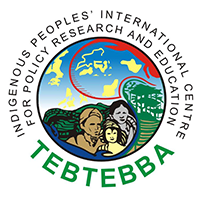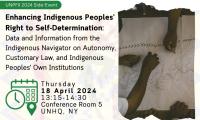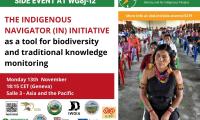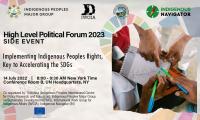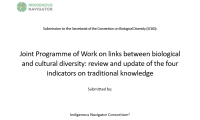Philippines: Indigenous Peoples Call for Better Health and Basic Services as They Deal with the Impacts of COVID-19
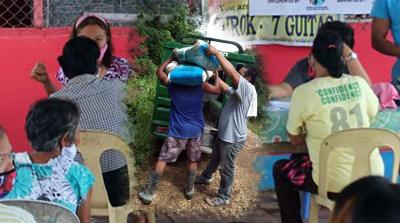
Doris Borna Mae Esteban 27 January 2021
It is ironic and sad that while we live in the Agusan Marsh, we do not have supply of clean, potable water
Becky Barrios, representative of Panaghiusa Alang Sa Kaugalingnan Ug Kalingkawasan, Inc. (PASAKK) narrated the plight of her people in the Agusan Marsh community, saying that even before the pandemic, many of the community’s fisherfolk were already dying from water-borne diseases like stomach ache, vomiting of blood, diarrhea, and difficulty in breathing.
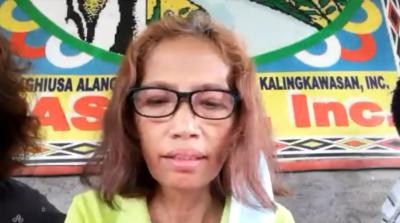
“Kaya sa tingin namin, totoo ang naging research ng Caraga State University (CSU) na mataas na ang [lebel ng] mercury at cyanide, na sanhi ng water pollution, na nakikita na ito sa mudfish at iba pang isda na nakukuha sa Agusan Marsh (That’s why, for us, there may be truth to the CSU research results stating high levels of mercury and cyanide, causing pollution [in the Marsh], that is also seen in the mudfish and other fishes caught from the Agusan Marsh),” Barrios shared. She called for the need to do sampling and mass testing of the Agusan Marsh water and the crucial necessity of providing the community with clean, potable water.
Through the Indigenous Navigator Initiative Philippines, the Dayalogo 3, Health and Basic Services: "Addressing Indigenous Peoples' Needs and Priorities during COVID-19 and Post-COVID-19 Recovery," happened virtually on 21 January 2021, via Zoom Meeting. One hundred and ninety-four (194) participants from various indigenous peoples’ and civil society support organizations and representatives of national government line agencies, namely the National Commission on Indigenous Peoples (NCIP), the Department of Health (DOH), the Department of Interior and Local Government (DILG), and the Department of Social Work and Development (DSWD) joined the meeting. The said dialogue was livestreamed via Tebtebba’s Facebook page, as well.
“We in the government, especially in the NCIP, are always on the side of sharing the narrative of our indigenous brothers and sisters,” stressed Allen Capuyan, Chairman of the NCIP, as he graced the meeting with a comprehensive presentation of the different goals and activities of the Commission.
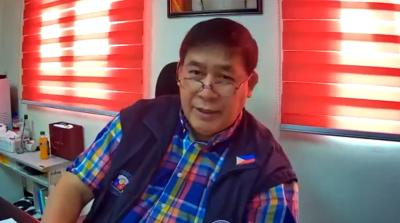
“Anything that would help uplift the lives of indigenous peoples is the NCIP’s concern. We are most willing to collaborate and to cooperate, whatever needs to be done,” added Rogelio Francisco ‘Jing’ Bantayan, Jr., Executive Director of the NCIP.
Several indigenous leaders also explained the diverging impacts of COVID-19 in their communities especially pertaining to food security, mental and spiritual well-being, and their difficulty in accessing various health and social services. Others mentioned the dramatic, increased prevalence of cases of violence against women and children that took place due to the extended lockdowns that ordered people to stay indoors to curb COVID-19 transmission. The occurrence of armed conflict, as is happening in South Upi and Upi in Maguindanao, which exacerbates the impacts of quarantine measures in the indigenous communities, is taking its toll on hundreds of families, especially women, senior citizens, persons with disability, and children, who are exposed to the elements and the lack of basic needs to combat the spread of COVID-19, and are in dire need of humanitarian assistance.
Nevertheless, some also pointed out the positive effects of the said lockdowns. “Dahil sa pandemya, nagkaroon ng pagkakataon ang mga katutubo na suriin ang totoong kalagayan ng kanilang sariling pamayanan lalo na sa pagtugon [sa kanilang pangunahing pangangailangan] (Because of the pandemic, indigenous peoples had the opportunity to assess their honest conditions in their own communities, especially in responding to their health and other basic needs),” Timuey Ronaldo ‘Jojo’ Ambangan of the Erumanen ne Menuvu Kamal shared.
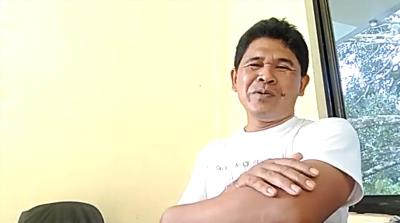
“Dahil sa pandemya, mas napayaman at malalimang nasuri ng pamayanan ang kanilang kakayahan lalo na sa pagtugon ng mga pangangailangan maging sa kabuhayan at kalusugan (Because of the pandemic, the indigenous community was able to enrich and deeply assess their capacity especially in the fulfillment of their needs including those of livelihood and well-being), Ambangan continued.
“Sana ay ikonsidera ang tradisyunal na kaalaman at pamamahala (We call for the recognition of traditional knowledge and customary governance), stressed Reynaldo Rodriguez, member of Samahan ng Katutubong Tagbanuang Tangdulanen sa Binga, Inc. (SAKATTABI) and San Vicente Municipal Indigenous People Mandatory Representative (IPMR), as he spoke about the difficulty experienced by indigenous peoples who had to travel long distances just to reach the nearest health care or maternity care facility in Palawan. He added that this concern of indigenous peoples became more difficult with the COVID-19 restrictions.
“Primary health care issues of indigenous peoples are mainly because many of them live in remote areas that are not easily reached by health professionals. It is essential to address health services in a culturally-appropriate manner,” explained Vicky Tauli-Corpuz, former UN Special Rapporteur on the Rights of Indigenous Peoples and Tebtebba Executive Director, as she gave her opening remarks during the said Dayalogo.
The Dayalogo series is a Tebtebba initiative that aims to assist sustained, collaborative, and constructive dialogues between Philippine indigenous peoples and various government agencies towards a better implementation of the Indigenous Peoples’ Rights Act and the United Nations Declaration on the Rights of Indigenous Peoples, as well as the attainment of the Sustainable Development Goals. It was made possible through the assistance of the European Union through the Indigenous Navigator Initiative, and the Pawanka Fund.
